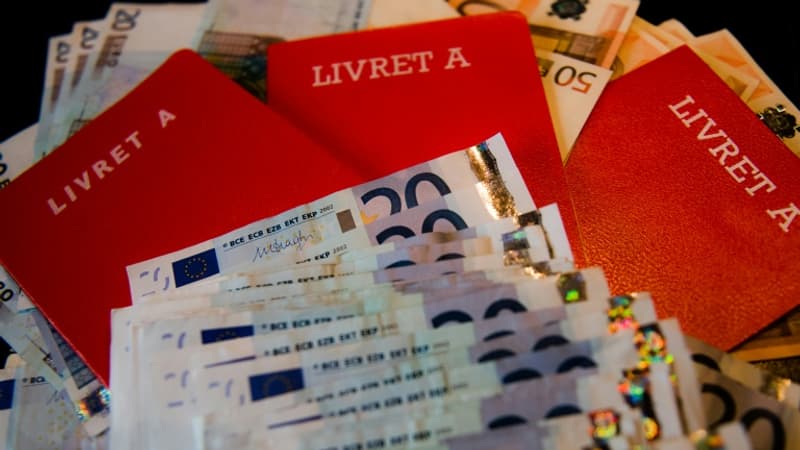Bad news for savers, but perhaps good news for the economy. After weeks of speculation, the Minister of the Economy finally followed the Banque de France’s recommendations: the livret A rate will remain at 3% on August 1 and this until the beginning of 2025.
The monetary institution deviated from the rule for calculating the regulated passbook rate authorized by law. Because theoretically, the rate should have risen to 4.1% taking into account the current level of inflation.
But it won’t. After four successive increases that have made it go from 0.5 to 3% in just over three years, the performance of the Livret A and the sustainable and solidarity development brochure is plummeting.
The government assumes it, for a while, its return will be even lower than inflation, which should be around 5% in 2023 according to Bercy forecasts. If you have 10,000 euros in your A booklet, you will lose 200 euros of purchasing power throughout the year.
Savings accounts pending at the top
An unpopular decision that the Banque de France and Bruno Le Maire consider better for the French economy.
Because regulated brochures have become too attractive. The French have deposited more than 50,000 million euros more in a year and the balances exceed the ceiling of 540,000 million euros. It is even estimated that 10% of the A booklets are already at 22,950 euros and can no longer be recharged.
But if the French save a lot, it is to the detriment of consumption. For the past two years, household spending has been at half-mast, seriously hurting growth. Raising the rate of regulated booklets would be a new stimulus not to consume.
Then too high a return began to overshadow certain investments like life insurance. For a few months the French have been taking money from this investment that gives them less (2% for funds in euros) to fill their savings account. A movement that, if accelerated, would pose serious solvency problems for banks and insurers that offer life insurance.
A disaster scenario experienced by some US banks at the beginning of the year but which is still highly exaggerated in the current situation. In May, certainly, savers withdrew more than they contributed, but the difference was barely 1,600 million euros for a total outstanding balance of 1,883 million euros.
But Bruno Le Maire alluded above all to the “national economic interest” to justify keeping the rate at 3%, referring to housing construction.
It should be remembered that the money from the booklets is used mainly to finance housing and in particular social housing. The Caisse des dépôts lends money from savings accounts to social owners for remuneration. However, this remuneration is proportional to the rate of return of the booklets. If it increases, donors have to pay more for their money, which gives them no incentive to build. A 1% increase in the booklet fee would have entailed an estimated additional cost of between 1,500 and 2,000 million euros for social owners.
Although the country is currently experiencing a serious housing crisis, it was probably not appropriate to make credit more expensive. In any case, this was the opinion of the Minister of Economy.
Source: BFM TV


